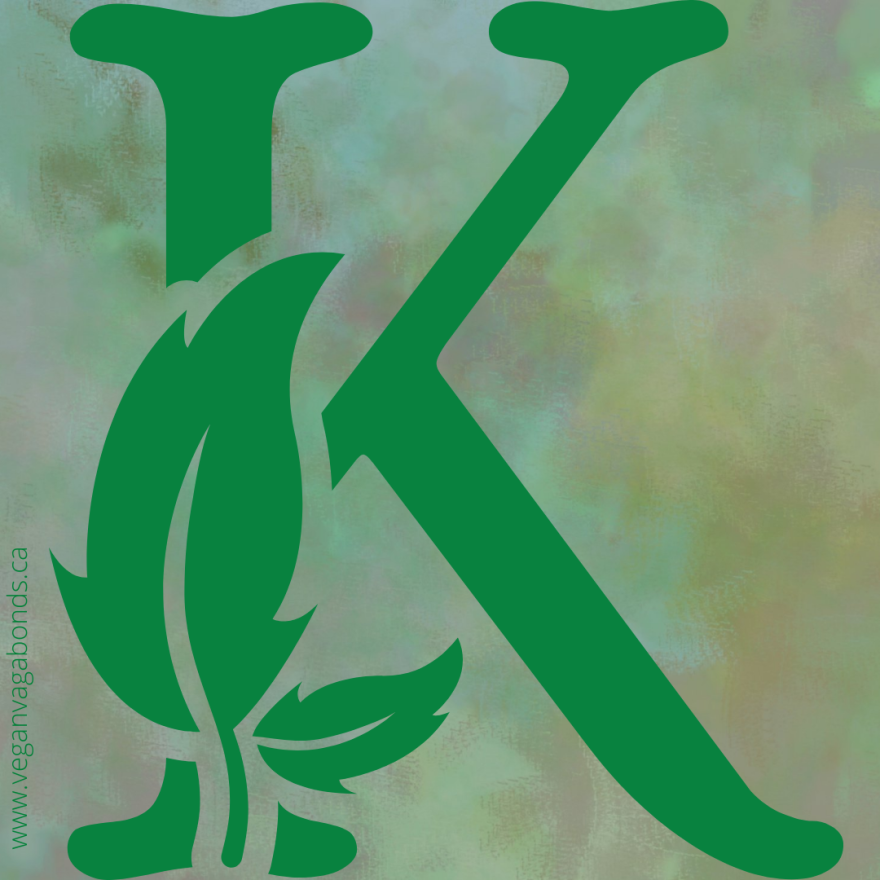Being Okay with Vitamin K

When looking into vegan/plant-based eating or transitioning to this type of eating, so often emphasis is put on nutrients like protein, calcium, iron, Vitamin B12 and D3.
One micronutrient that often takes a back seat to these heavy hitters is Vitamin K.
K is a fat-soluble vitamin which means it does not dissolve in water and it also means that for the best absorption, it is a good idea to take it with some dietary fat – like avocado or olive oil. Your body will only use so much of it and either discharge the unused portion or store it.
Vitamin K is important to our bodies in keeping our bones strong as well as making sure we have healthy blood clotting. It may also play a role in: brain function, heart health, insulin sensitivity.
There are two main types of Vitamin K being K1 and K2.
The first is K1, known as phylloquinone. Good news for vegan/plant-based eaters – this type of Vitamin K is found in vegetables especially leafy green ones like spinach, as well as kale, cabbage, cauliflower, Brussels Sprouts, asparagus and peas. The RDA of K1 is 90mcg for women and 120mcg for men. So as long as you are eating a healthy, varied diet, you shouldn’t have any problem with K1 deficiencies.
The second type is K2, known as menaquinone. This type is predominantly Found in animal products and fermented foods. It is also produced by healthy bacteria in your gut microbiome. For those on a vegan/plant-based diet, the best sources of this version are fermented foods like natto (a Japanese dish made with fermented soybeans) sauerkraut, tempeh and kimchi (a Korean dish made with fermented cabbage).
It has been suggested by scientists studying the effects of K2 that an RDA runs between 10 to 40mcg. For vegan/plant-based eaters it’s a little bit harder to know if you are getting enough K2 as the sources are rather limited. It is best to talk with your health practitioner and/or nutritionist to talk about taking a supplement.
When it comes to supplementation, it is of note that Vitamin K2 appears to help with the absorption of Vitamin D – so people often take these together. Once again, chat with your health practitioner. Also, if you are on blood thinners, it is most important to talk with your health provider when changing Vitamin K levels in your body.
So, if you want to get your Vitamin K on, try roasting up some Brussels Sprouts or cauliflower and toss a bit of kimchi on the side.
Just sayin' is all!
Lou-Anne Hooper
www.facebook.com/veganvagabonds1
New-to-Veganism Neighbourhood | Facebook
www.instagram.com/vegan.vagabonds1
For more information on my online course:
“The Vegan Journey: A Beginner’s Pathway”
please contact me at veganvagabonds@rogers.com
DISCLAIMER: None of the information in this document is a substitute or replacement for information that should be obtained by your medical practitioner and/or registered nutritionist. Please contact these persons for answers to your health and nutritional questions.
